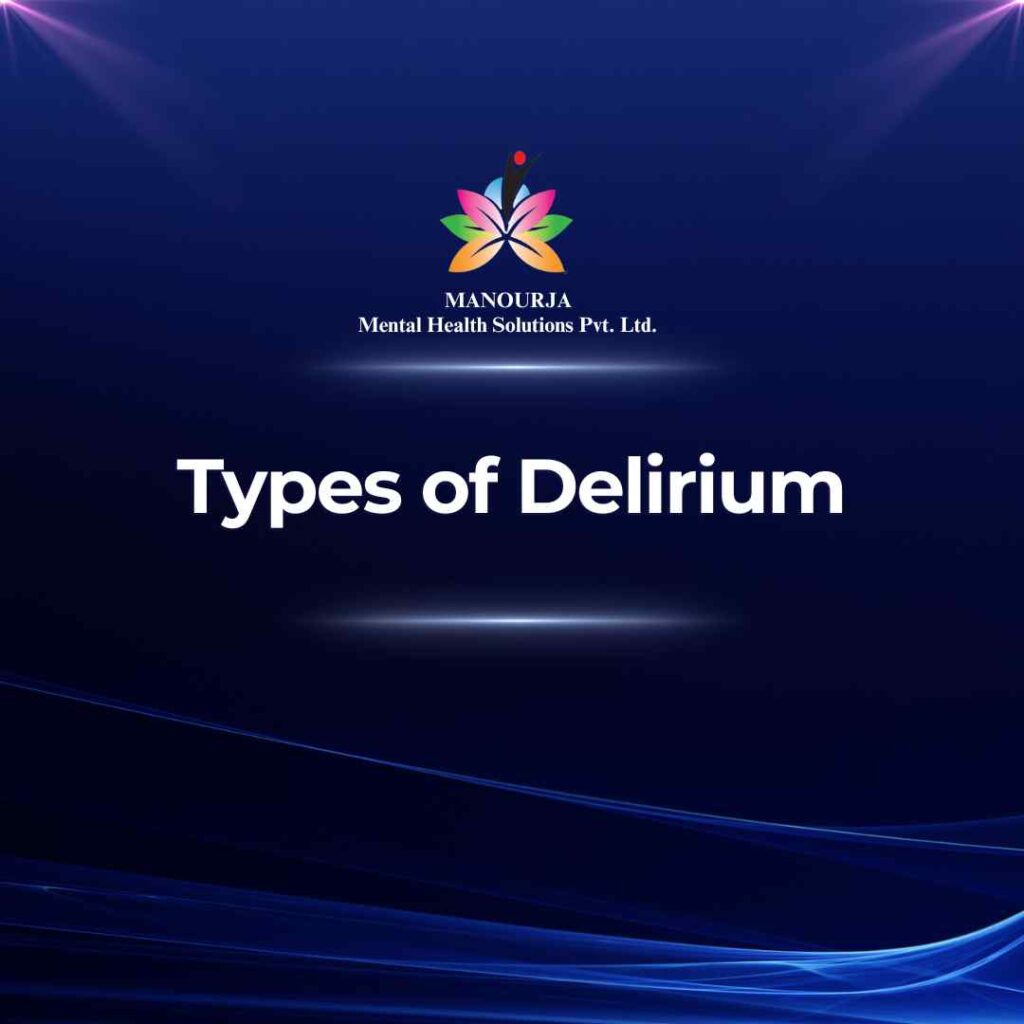Types of Delirium

Delirium can manifest in various forms, each presenting unique characteristics and clinical features.
Here’s a description of the main types of delirium:
- Hyperactive Delirium: Individuals with hyperactive delirium exhibit increased psychomotor activity, restlessness, and agitation. They may appear visibly agitated, irritable, or aggressive. Symptoms can include rapid speech, purposeless movements, and difficulty staying still. Hyperactive delirium is often more apparent and easier to recognize compared to other types.
- Hypoactive Delirium: Hypoactive delirium involves a decrease in psychomotor activity and responsiveness. Individuals may appear lethargic, drowsy, or withdrawn. Unlike hyperactive delirium, symptoms of hypoactive delirium may be subtler and harder to detect, potentially leading to underdiagnosis or misinterpretation as depression or sedation.
- Mixed-Type Delirium: Mixed-type delirium presents with a combination of hyperactive and hypoactive features. Individuals may alternate between periods of agitation and lethargy, with symptoms fluctuating over time. Mixed-type delirium can pose diagnostic challenges due to its variable presentation and may require tailored management approaches.
- Subsyndromal Delirium: Subsyndromal delirium refers to a milder form of delirium where individuals experience some cognitive disturbances but do not meet the full diagnostic criteria. Symptoms may include subtle changes in attention, concentration, or consciousness. Although less severe, subsyndromal delirium can still impact functioning and may indicate increased vulnerability to delirium progression.
- Persistent Delirium: Persistent delirium occurs when delirium symptoms persist for an extended period despite treatment of underlying causes. This type of delirium may be particularly challenging to manage and often requires comprehensive medical evaluation and ongoing monitoring. Persistent delirium can result from complex medical conditions, polypharmacy, or inadequate response to treatment.
- Recurrent Delirium: Recurrent delirium involves multiple episodes of delirium separated by periods of normal mental functioning. Individuals may experience recurrent episodes triggered by factors such as illness, surgery, or medication changes. Recurrent delirium may indicate underlying predisposing factors or vulnerabilities that increase the risk of delirium recurrence.
Understanding the different types of delirium is crucial for accurate diagnosis, appropriate management, and tailored interventions. Healthcare professionals should consider the specific characteristics and clinical features of each type when assessing and treating individuals with delirium.
At MANOURJA, we believe in the transformative power of counseling. Our experienced therapists offer a safe and supportive space where you can explore your thoughts, emotions, and challenges. Through personalized counselling sessions, we’ll work together to develop coping strategies, build resilience, and achieve lasting positive change. Discover the path to a healthier, happier you with MANOURJA counselling services.
MANOURJA Rehabilitation Services
At MANOURJA, we’re dedicated to helping you in rebuild your life, after difficult times. Our rehabilitation services focus on understanding what you need to move forward, whether you’re recovering from addiction, trauma, or any psychological – social challenges. We create personalized plans, that are all about helping you, regain your strength and find hope again. With a caring team by your side, you’ll have the support to make real progress and take steps toward a brighter, healthier future.
